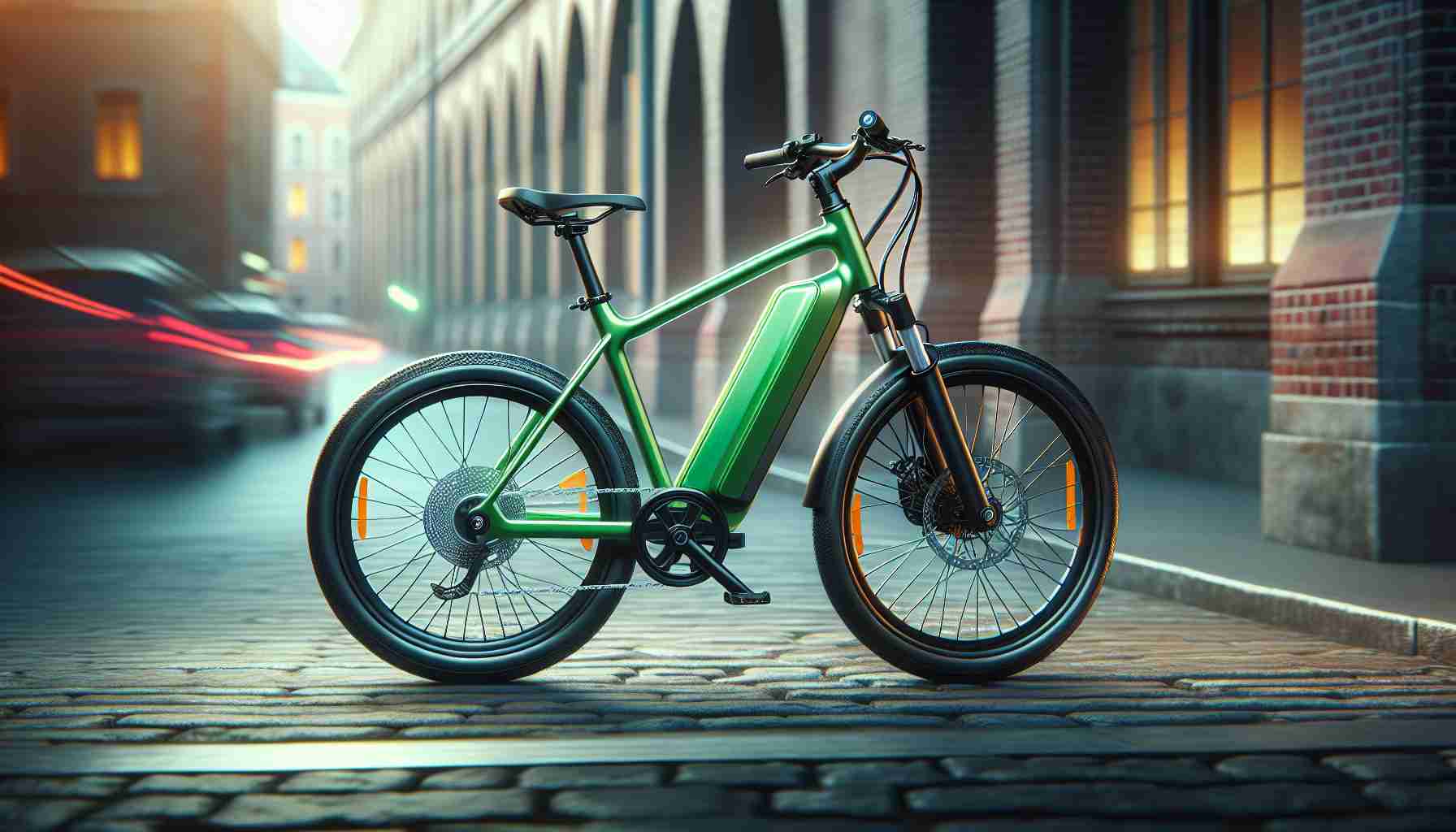In the fast-paced world of technology, e-bikes have revolutionized the way we think about commuting. With roots tracing back three decades to the Pedelec, these electric bicycles started with lead-acid batteries and have evolved into today’s high-speed machines.
A surprising name in e-bike history is Makita, a giant in the power tool industry. Known for its innovative technologies, Makita once ventured outside its comfort zone, releasing a quirky e-bike powered by two of its signature 18-volt LXT batteries. This unique bike, weighing just 46 pounds and foldable for easy storage, appeared over a decade ago. However, it soon disappeared from most online platforms, including the official Makita site, leading many to speculate that it was merely a promotional gimmick.
Unlike typical bikes available globally, this particular Makita e-bike never reached the U.S. market. Those in regions such as Asia and Europe reported occasionally spotting it, yet it was primarily promoted as a collector’s item in a TikTok video from Makita Netherlands. The bike’s unavailability even on major sites like Amazon India underscores its rarity.
Discussions on platforms like Reddit support the claim that the Makita e-bike was crafted for brand buzz rather than widespread sale. Although some models pop up at extravagant prices, like a listing on Australia’s eBay for 1,400 AUD, they remain elusive gems for enthusiasts. By leveraging limited editions and intriguing narratives, companies like Makita keep their audience engaged and talking.
The Secret World of Limited Edition Tech: What Happens When Companies Experiment with E-Bikes?
The realm of electric bicycles is not just about convenience and eco-friendly commuting; it’s a space where innovation meets intrigue. A little-known chapter in this story is the mysterious Makita e-bike—a brief and unconventional venture by the renowned power tool manufacturer that many have never even heard of. This peculiar project opens up a conversation about how limited editions and tech experiments impact both cultures and markets.
The Cultural Impact of Limited Edition Products
The Makita e-bike is a fascinating case study of a product that seems to have been created more for its cultural cachet than its practical application. In regions like Asia and Europe, where it made sparse appearances, this e-bike acted as more than just a mode of transport. It became a conversation starter, a curiosity that prompted discussions both online and offline.
For communities where these bikes were spotted, they contributed to a sense of exclusivity and fascination. Products like the Makita e-bike create small, niche communities that discuss, hunt for, and showcase these rarities, giving rise to a subculture centered around the search and acquisition of limited editions.
Advantages and Disadvantages of Such Ventures
Creating a limited edition product can have several benefits for a brand:
– Buzz and Engagement: As seen with Makita, these products generate buzz and keep the community engaged, curious about what’s next from the company.
– Brand Loyalty: For collectors and fans, owning a rare item strengthens their connection to the brand.
– Driving Traffic: Discussions on platforms like Reddit and TikTok drive digital traffic and engagement—even if the discussions are about scarcity.
However, there are notable disadvantages:
– Lost Revenue Opportunities: By not deploying the product widely, the company misses potential revenue.
– Customer Frustration: Fans and potential customers unable to acquire these items may feel frustrated, potentially impacting brand perception.
– Misunderstood Intentions: Was it a genuine innovation attempt or just a gimmick? Such ventures can confuse both consumers and stakeholders.
Controversies and Unanswered Questions
The Makita e-bike raises intriguing questions: Was it a marketing stunt, a testing ground for battery technology, or a collector’s item meant to gauge market interest? Speculations abound due to the lack of clear communication about its purpose.
One controversy lies in accessibility. With sightings reported mainly in TikTok and high bids on platforms like eBay, is there an ethical concern about deliberately creating consumer demand for an item intentionally kept scarce?
What Happens Next?
For companies, the question is whether these experiments are worth pursuing. Should innovation be reserved solely for practical, scalable products, or is there merit in these limited edition enigmas?
In the global context, can nations leverage such inventions to influence their standing in the technology sector, or do these limited releases trivialize serious advancements in green transportation?
Conclusion
While the Makita e-bike may no longer be available, its existence continues to spark discussions. Are limited edition tech products a flash in the pan, or a strategic move to entice and tease consumers into deeper brand loyalty?
For those intrigued by the intersections of technology, culture, and commerce, the Makita e-bike offers a glimpse into the lesser-seen side of product innovation. For more information on similar tech innovations, you can explore Makita’s website.







